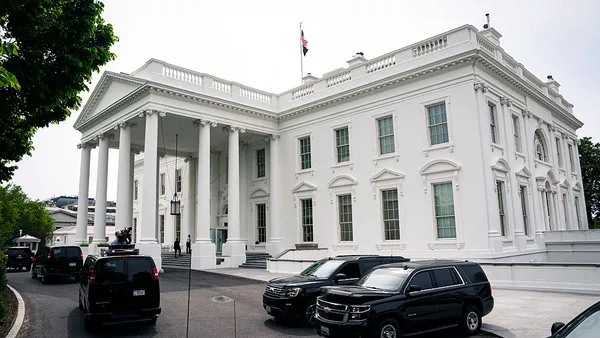Dive Brief:
- In a Washington Post op-ed piece published Sunday, Lawrence Summers, former treasury secretary and adviser to President Barack Obama, laid out the case for a program of significant U.S. infrastructure investment and urged the next president to make it a priority.
- Summers wrote that current low borrowing rates will further maximize returns on infrastructure repairs and upgrades and minimize "profound questions" about America's future and ability to meet the rest of the world's infrastructure standards.
- An infrastructure investment of 1% of gross domestic product would make a significant dent in maintenance backlogs, what Summers considers the highest priority, and allow the country to start new projects as well.
Dive Insight:
Bolstering Summers' position, a recent Bloomberg op-ed piece, which used Denver International Airport as an example, asserted that U.S. cities and states stand to gain billions of dollars in benefits from smart infrastructure investment. Bloomberg's Matthew Winkler said in exchange for the $2 billion it kicked in for DIA, Denver has seen a $26 billion annual return. Investors in DIA bonds have also seen a total return of 19% over the last five years.
Both U.S. presidential candidates have said the country should invest hundreds of billions of dollars in critical infrastructure projects, nowhere near Summers' floor of $2.2 trillion, which is 1% of GDP. While Hillary Clinton has suggested a $275 billion investment over five years and the creation of an infrastructure bank to draw in private investment, Donald Trump promised to double Clinton's investment amount, with funding for his plan coming from bonds.
Last year in a USA Today op-ed piece, Brendan Bechtel, incoming CEO of Bechtel, also called on public officials to increase infrastructure spending and to take advantage of public-private partnerships. While Summers seems to have his doubts about the structure, advocates have said P3s are a way to shift the burdens of financing and maintenance to the private sector, allowing public entities to use their limited cash to invest in more projects.














